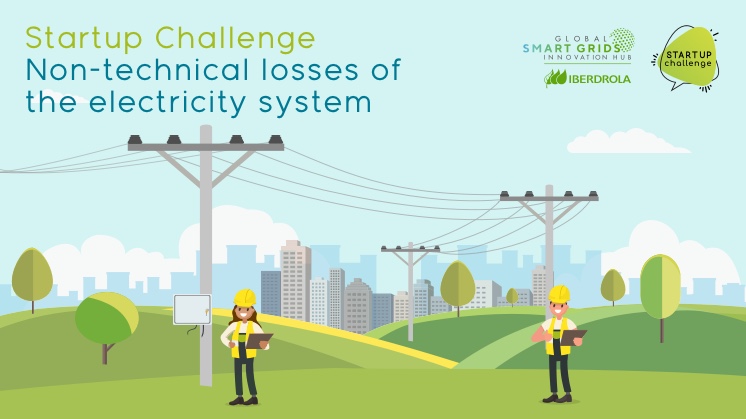Startup challenge: Non-technical power losses
Brazilian start-up proposes using digital twins to identify non-technical network losses
Start-up challenge GSGIH Electrical network
Iberdrola, through its International Startups Programme - PERSEO, launched this challenge to find competitive, innovative solutions to reduce non-technical losses from the distribution network.

The expertise of the Brazilian company Automa in smart digital twins has led its candidacy to win Iberdrola's Start-up Challenge 'Non-technical losses in the electricity system'. A challenge launched in November 2021 to find competitive and innovative solutions to improve the identification of those points in the electricity grid where most non-technical energy losses occur due to user fraud.
The PERSEO International Start-up Programme has selected Automa's proposal to use images from drones, video surveillance cameras and sensors to create what they call a "Real Time Digital Twin" of the electricity distribution grid. By applying Machine Learning and Deep Learning techniques, the company can process the images to generate a 4D version of the power system. In other words: an accurate and dynamic spatio-temporal representation of the monitored environment.
All proposals for new devices and tools to identify and reduce non-technical losses, with a special focus on Brazil, have been analysed by experts from Iberdrola's Networks Business based on criteria of scalability, robustness and ease of application and use.
Non-technical losses
Iberdrola has more than 1.1 million kilometres of electricity transmission and distribution lines throughout the United States, Brazil, the UK and Spain. This network comprises over 4,400 high-to-medium-voltage substations and more than 1.5 million medium-to-low-voltage distribution transformers built and operated to provide a high-quality and reliable service to a total of 31 million electricity supply points.
The electricity system, of which Iberdrola's networks are a part, is subject to energy losses that must be correctly identified, categorised and accounted for to avoid additional costs for end customers and society at large. These losses are generally divided into two types: technical losses, caused in the network installations by the operation of the system itself, and non-technical losses, mainly due to fraud, such as illegal connections and meter tampering.
In order to identify these losses, Iberdrola implements various mechanisms based on the Group's accumulated experience and knowledge, such as the installation of smart meters, network sensors, and other measurement elements, with which it has managed to significantly reduce losses. However, there are areas of the network, particularly in Brazil, where the challenge of identifying and reducing losses is particularly complex. The company is therefore looking for additional mechanisms that will enable it to further improve in this area.
Global Smart Grids Innovation Hub
This challenge has been launched within the framework of Iberdrola's new smart grid innovation centre, the Global Smart Grids Innovation Hub, which is designed to be a global benchmark in smart networks, through open collaboration and coworking among i-DE suppliers, startups and different organisations worldwide.
The hub will act as a driving force for innovation, combining the company's technological capacity with that of its collaborators: suppliers, universities, technology centres and startups. It will also be used to attract strategic suppliers and international talent, thus strengthening the business ecosystem.
Iberdrola has already identified and is working on more than 120 projects worth 110 million euros and has reached agreements with 30 technology partners on developing grid digitalisation solutions, renewables integration, electric vehicle deployment and energy storage systems. The lines of work, which are international in scope, will enable the development and deployment of innovative solutions for the activity of Iberdrola Networks throughout the world.
The prize
The prize for Automa consists in signing a collaboration and testing agreement with PERSEO or any other company of the group, which will assume the costs of such activities and provide the winner with the necessary technical support, as well as a real environment and data to test the solution, giving access to equipment, teams, infrastructures, high-tech sites and co-working areas.
The digital twins project will be developed in collaboration with technical specialists from Iberdrola's Networks area and Automa will be directly included in the process of joining the Global Smart Grids Innovation Hub, as another collaborator that will be able to benefit from the services, activities and resources made available in the GSGI Hub.
If the trial or proof of concept is successful, Iberdrola may offer the start-up the opportunity to scale up the solution by adopting it through commercial agreements. In addition, PERSEO may consider investing in the company and/or in the winning solution of the challenge.





